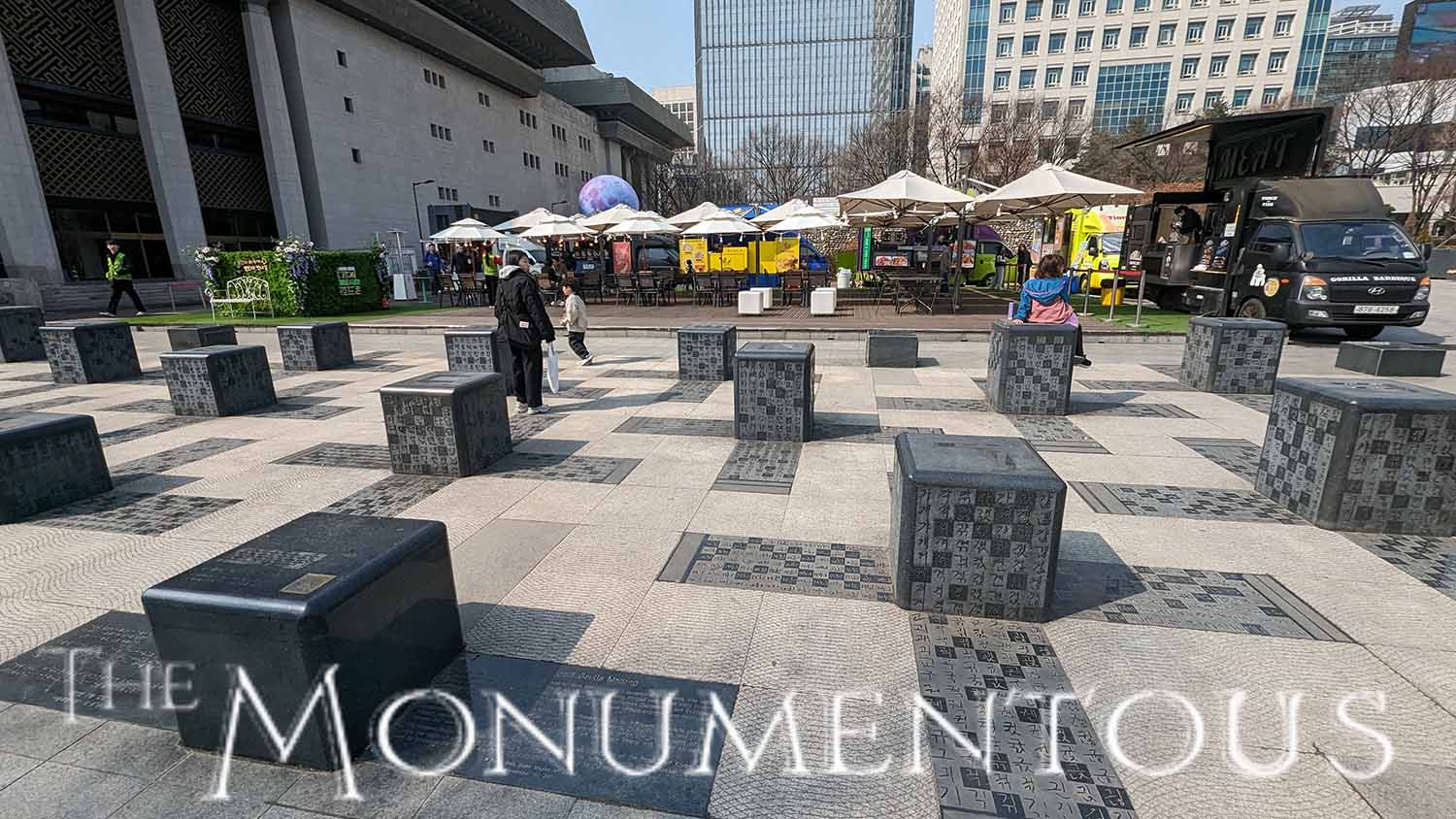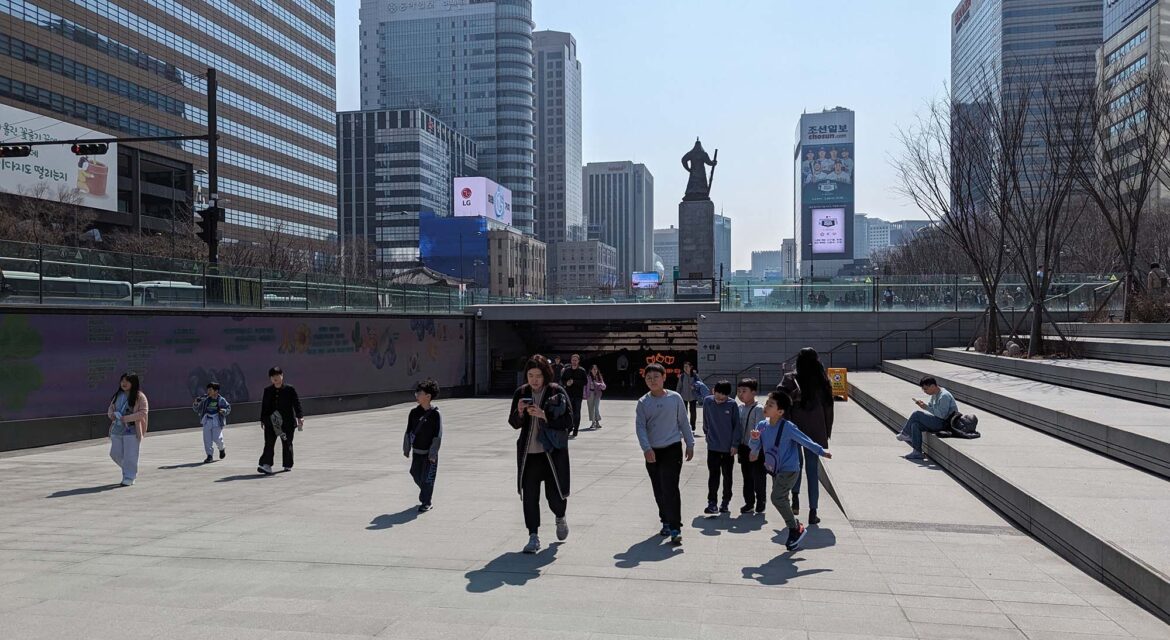 Once the central point of the city of Seoul in South Korea, Gwanghwamun Square is one of the most popular landmarks in city. Featuring notable monuments and a direct line to Gyeongbokgung Palace, the space cultivates activity and engagement with residents and visitors on account of numerous features, providing the city and community with an important means of connection that spans across audiences and eras.
Once the central point of the city of Seoul in South Korea, Gwanghwamun Square is one of the most popular landmarks in city. Featuring notable monuments and a direct line to Gyeongbokgung Palace, the space cultivates activity and engagement with residents and visitors on account of numerous features, providing the city and community with an important means of connection that spans across audiences and eras.

A Symbol of Democracy and Harmony
 Running 555 meters long and 34 meters wide, Gwanghwamun Square is divided into six sections and is the largest road in the country. It is named after Gwanghwamun, which is the main and largest gate of Gyeongbok Palace that bookends the Square. The space has a history that stretches back to the Joseon Dynasty in the 14th century and somewhat fell into disrepair during the Japanese colonial period and the Korean War, but installations and updates over recent decades have positively transformed the entire landmark.
Running 555 meters long and 34 meters wide, Gwanghwamun Square is divided into six sections and is the largest road in the country. It is named after Gwanghwamun, which is the main and largest gate of Gyeongbok Palace that bookends the Square. The space has a history that stretches back to the Joseon Dynasty in the 14th century and somewhat fell into disrepair during the Japanese colonial period and the Korean War, but installations and updates over recent decades have positively transformed the entire landmark.
Statues of King Sejong and Admiral Yi Sunshin dominate Gwanghwamun Square. King Sejong is one of the most respected kings of the Joseon Dynasty while Admiral Sun-shin became a hero for his victories against the Japanese navy during the invasions of Korea in the 16th century. Beneath the King Sejong staue is is an exhibition hall where visitors can see and experience the stories of King Sejong and Admiral Yi Sun-sin. The space also hosts numerous interactive and community-based initiatives.
Originally a 16-lane roadway, a 2009 adjustment reduced Gwanghwamun Square to 10 lanes to create more room for the public to congregate, enabling the transformation of the space. This facilitated the creation of various businesses on each side of the square as well as a places for the community to gather and relax. These developments have allowed Gwanghwamun Square to become the home of various formal and informal events over the year, including as the location for the start of the annual Seoul International Marathon.
Featured on countless maps and guides to the city, Gwanghwamun Square is widely recognized as a symbol of democracy and harmony, underscoring the impact it has made on residents and to visitors.

History, Culture and Connection
 Functioning as a space that is equal parts history, culture, and connection, Gwanghwamun Square has become part of the community and country in a way that resonates. This impact can be seen in the economy and culture across the city and beyond, highlighting the far-reaching impact that such landmarks can cultivate.
Functioning as a space that is equal parts history, culture, and connection, Gwanghwamun Square has become part of the community and country in a way that resonates. This impact can be seen in the economy and culture across the city and beyond, highlighting the far-reaching impact that such landmarks can cultivate.

